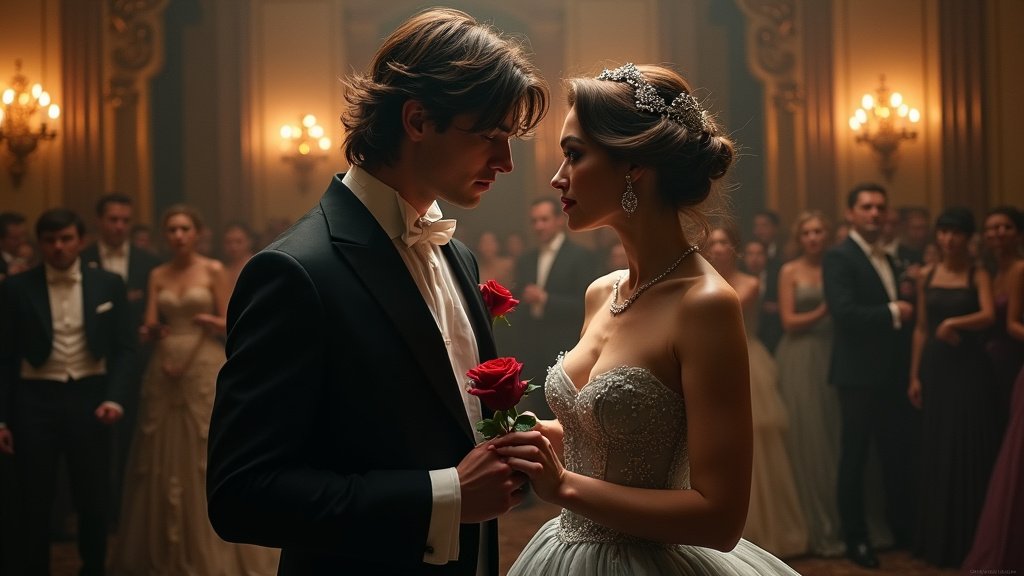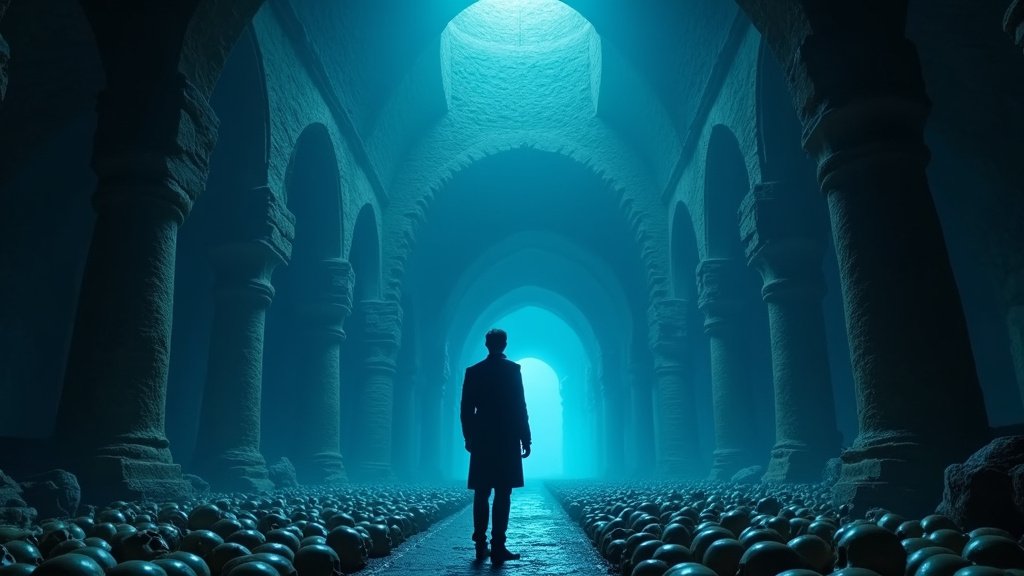Let’s face it—there are few things more unnerving than social obligations. Whether it’s making awkward small talk at a party or trying to navigate a dreadful dinner with strangers, sometimes the fear of being rude can lead us into truly dangerous territory. Enter “Speak No Evil,” the 2024 psychological thriller that takes this discomfort and ratchets it up to the level of a full-blown nightmare. Directed by James Watkins, this film is a tense remake of the 2022 Danish original by Christian Tafdrup, but with a distinctly American flair and a touch of brutal catharsis that’s both a blessing and a curse.
Plot Overview: A Politeness-Powered Descent into Horror
The premise is deceptively simple. The film follows the Dalton family—Ben (Scoot McNairy), Louise (Mackenzie Davis), and their young daughter Agnes—who meet the seemingly affable Paddy (James McAvoy) and Ciara (Aisling Franciosi) during a vacation in Italy. After a brief, seemingly friendly encounter, the Daltons are invited to the British couple’s remote farmhouse for a weekend getaway. However, what begins as an innocent invitation quickly spirals into a situation so intensely unsettling, you’ll find yourself wanting to scream at the screen, “Just say no and go home!”
But, of course, they don’t. Instead, Ben and Louise, driven by that all-too-familiar fear of offending their hosts, ignore the mounting signs of something being terribly amiss. From uncomfortable sleeping arrangements to unsettling dinner table confrontations (including a vegetarian being subtly pressured to eat meat), every interaction becomes a microcosm of growing dread. Before long, the politeness that initially kept things civil turns into the very weapon used to ensnare them in a web of psychological and, eventually, physical torment.
Performance Breakdown: McAvoy Steals the Show
James McAvoy’s portrayal of Paddy is a masterclass in controlled menace. On the surface, he’s charming, disarming even, but there’s an unmistakable glint of danger lurking behind his every smile. McAvoy excels in roles that require a touch of the unhinged, and here, he’s in top form. His ability to switch from affable host to manipulative predator is as terrifying as it is mesmerizing.
Mackenzie Davis and Scoot McNairy, as the beleaguered Daltons, deliver performances that are both relatable and deeply sympathetic. Their dynamic as a couple—strained by external pressures and internal doubts—adds an extra layer of tension to the already fraught scenario. Their slow realization of the horror they’ve walked into is both heartbreaking and horrifying, especially as the power dynamics between them and their hosts shift in terrifying ways.
Aisling Franciosi’s Ciara is a more enigmatic figure. Her performance hovers between victim and villain, keeping the audience guessing until the very end. This ambiguity adds to the film’s tension, as you’re never quite sure where her loyalties lie—or if she’s as trapped as the Daltons.
Direction and Cinematography: Turning Politeness into Pathos
James Watkins, known for his work on “Eden Lake” and “The Woman in Black,” is no stranger to blending suspense with horror. In “Speak No Evil,” he manages to capture the slow-burn terror of the original while adding his own flair for visceral, almost unbearable tension. The cinematography by Tim Maurice-Jones plays a significant role in this, with its earthy, sun-drenched visuals contrasting sharply against the dark undercurrents of the plot. The seemingly idyllic countryside setting becomes a claustrophobic trap, with every shot contributing to the growing sense of unease.
Themes: The Dark Side of Social Decency
At its core, “Speak No Evil” is an exploration of the dangers of social decency. It’s about the lengths to which people will go to avoid conflict, even when their safety is at risk. This theme is what makes the film so relatable and, ultimately, so disturbing. How many times have we, as viewers, sat through an uncomfortable situation simply because we didn’t want to cause a scene? Watkins takes this everyday discomfort and amplifies it to terrifying proportions.
The film also touches on themes of masculinity and power. Ben’s reluctance to stand up to Paddy is not just about politeness but also about his own insecurities. There’s a subtle, simmering tension between the two men, with Paddy representing a hyper-masculine ideal that Ben both resents and envies. This dynamic plays out in various ways throughout the film, culminating in a final act that, while divisive, feels like a release of all the pent-up tension that’s been brewing beneath the surface.
Comparison to the Original: A Tale of Two Cultures
For those familiar with the 2022 Danish original, the American remake may feel both familiar and different. While Tafdrup’s original leaned heavily into the psychological aspects of horror, with an ending that was as bleak as it was unforgettable, Watkins’ version opts for a more action-oriented finale. This shift is likely to divide audiences, especially purists who appreciated the understated horror of the original.
However, this isn’t necessarily a bad thing. Watkins’ take on the material is more accessible to a wider audience, particularly those who prefer their horror with a side of catharsis. The final act’s descent into violence may lack the subtlety of its predecessor, but it’s undeniably effective in delivering a visceral punch. It’s a choice that makes sense within the context of the remake, even if it sacrifices some of the original’s more haunting qualities.
Final Thoughts: A Film That Speaks Volumes
“Speak No Evil” is a film that lingers long after the credits roll—not necessarily because of its scares, but because of the way it holds up a mirror to our own social anxieties. It’s a horror film for anyone who’s ever smiled through gritted teeth, nodded along in agreement when they wanted to scream, or stayed in a situation they knew was wrong just to avoid causing a scene. It’s a movie that asks uncomfortable questions about the nature of politeness, power, and the human capacity for self-deception.
In the end, while “Speak No Evil” might not be a revolutionary entry in the horror genre, it’s a well-crafted, unsettling thriller that will make you think twice before accepting that next invitation from a new acquaintance. Just remember, sometimes the scariest thing in the world is simply saying “no.”
Rating: ★★★★☆





